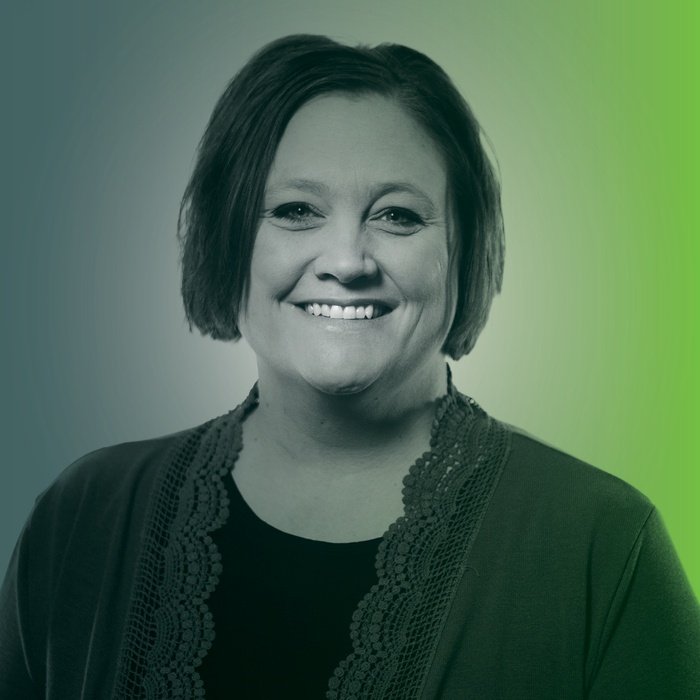What is your position with Ellipsis?
I am the chief clinical officer.
How long have you worked there?
I started at Youth Homes of Mid-America (YHMA) in 2004 as a youth care worker and worked there for two years. I left to be an in-home worker and only made it about six months before I was back at YHMA. When I returned, I was a counselor for six years and then decided to go back to school to get my master’s degree in social work. I once again came back to YHMA and worked as a therapist. Now I’m the chief clinical officer. So, long story short, I’ve worked at YHMA and Ellipsis for about 16 years.

Have you had any other roles/jobs during your tenure with Ellipsis?
I was a youth care worker, counselor, therapist, program manager, clinical director and now chief clinical officer.
What drew you to work at Ellipsis?
It’s the culture. I have worked other places and done practicums with different organizations, and you cannot put a price on the ability to be real and have the compassion that we do at Ellipsis. We do what we say, we say what we mean, and I wish there was more of that in the world! But ultimately, everything we do is for the kids and families. I quickly learned in my time as an in-home worker that I am good at working with adolescents and teenage youth. Understanding what these youth have been through, as well as their families, I wanted to be part of their process of healing and developing their own success story. That is the most rewarding feeling in the world, knowing that you were but a moment in time for someone and made an impact.
Can you recall a moment (during your career with Ellipsis) when you felt like you were in exactly the right place, doing exactly what you should be doing? What was that like?
Every day! I found my niche working with the population we serve in our residential programs, and I feel absolutely at home every day I come to work. This is due to the culture, my co-workers and the leadership of the agency. I am very lucky to be a part of this place. I also have a passion for the systemic changes that need to happen to better serve the kids and families and now I am in a position to make more of an impact on a larger scale.
What are some of the more challenging aspects of this job?
It’s challenging when you know a kid or family is incredibly capable of doing the right thing, but they are not ready in their headspace to make those changes. The story of the starfish always comes to my mind, where there is a man walking on a beach and sees a bunch of starfish washed up on shore. He starts throwing them back one at a time, but it is an endless amount on the beach. Another person walks by him and says, ‘What are you doing that for? Nothing is going to change. They are going to continue to wash up on the beach; it doesn’t matter.’ The man replies as he throws another starfish in the ocean, ‘It matters to that one.’
That is what is rewarding and challenging at the same time: Helping one kid or family, but knowing there are so many more out there that need the help as well.
What are some of the rewarding aspects of the job?
When a youth comes back after years to see you or calls back and says, ‘You know, I didn’t get it then and didn’t listen to you then, but I completely get it now.’ That has been amazing. We might not be there for the ‘a-ha’ moment, but being present in the kid’s or family’s life is rewarding in itself.
Why is it important to have residential programs in communities, and qualified people working in them?
Unfortunately, we are a necessary part of the system. There are going to be kids that need to be in a residential program due to the trauma they have been through in their life and the choices they have made. I think it is vital to have a residential program be real and ‘homey’ rather than institutionalized. We have to meet the kid and family where they are at; sometimes that is at the worst point in their life, and they need the residential aspect of our programming. Our staff members have the qualifications but ultimately the heart to take care of these kids in the worst moment of their life; it’s a huge responsibility and we should not take that lightly. Every interaction, every moment can have a lasting impact and we should strive to ensure those are positive memories for the kids and families we serve.
What is a misconception people may have about Ellipsis or residential programs? How do you dispel that?
We are not ‘the system’ and we are not taking your kids away from their families. Our role is to help the kid and family get to a point where they can be successful in their own lives. Our ultimate goal is to work ourselves out of a job! I would love to be able to say that we do not have the need to exist anymore. Every program is different — every kid is different — and it is absolutely imperative that you have the ability to treat each person as an individual and not some cookie-cutter mold. We are also dealing with the most traumatized, depressed, angry, anxiety-ridden, lonely, abandoned and frustrated group of kids and they are going to act out. It is our job to ensure they are safe as they process through those intense feelings and that we keep their best interest at heart.
If there’s anything else you’d like to add about your role, please feel free to do so!
I feel incredibly lucky to be an integral part of services that help kids and families in our community. I am hopeful that we can continue to strive for excellence and work on fixing what is broken so kids and families get what they need, when they need it. I don’t think I could do anything else, and I am going to continue to work myself out of a job!
